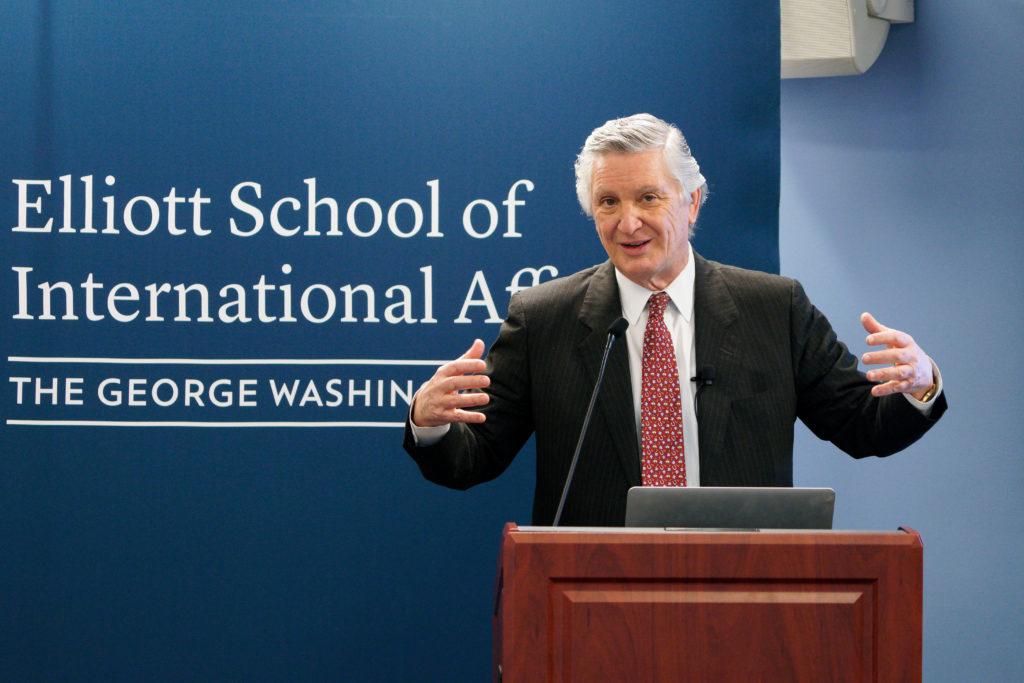The ambassador of Peru to the United States visited the Elliott School of International Affairs Monday to discuss Peru’s democracy and the country’s relationship with the United States.
Carlos Pareja – a native of Peru’s capital, Lima – has served as Peru’s ambassador to the United States since September 2016 and previously served as an ambassador to Spain, Switzerland and Chile. Pareja, who will leave his post in December, discussed his nation’s maturing democracy and economy at the event, which was part of the Elliott Ambassador Forum sponsored by the Latin American and Hemispheric Studies Program.
Pareja recalled his country’s struggle on the path to democratization, which involved numerous dictatorships. He said Peru began to change during the presidency of Alberto Fujimori, who operated a regime that was neither fully democratic nor fully dictatorial after his election in 2000.
“The difference with the United States is that you have got a continuity in democracy, and we have had dictatorships, a lot of military governments, some to the left, some to the right,” he said. “That has halted our recovery, our development, not only in the economy but also as a country, as a democracy.”
Since 2000, Peru has had five democratically elected presidents, which Pareja said proves that Peru’s democracy is “stronger than maybe what we thought it would be.”
Pareja also addressed the state of Peru’s economy, which he called “very active” and “growing.” He said the economy is dependent on the agricultural and mining sectors, which produce commodities and minerals like gold, silk and copper.
“They don’t give big revenue to the country, but they give a lot of work, a lot of employment,” he said.
Pareja then pointed to the informal sector, which he said constitutes 70 percent of Peru’s economy – a consequence of Peru’s history of economic depression during the country’s “terrorist years.” But he said the prevalence of jobs in the informal sector means that many Peruvians don’t pay taxes – leading to poor state-funded services, like schools.
Pareja also discussed Peru’s relationship with other countries, especially the United States. In April, the country hosted the eighth Summit of the Americas, a conference of Western Hemisphere states focused on issues common to Pan-America, Pareja said.
He added that President Donald Trump was scheduled to attend the conference, but Vice President Mike Pence and Trump’s daughter and adviser, Ivanka Trump, attended in his place.
Pareja spoke positively of Secretary of State Mike Pompeo, contrasting him favorably with his predecessor, Rex Tillerson. He said Peru’s diplomats “do not feel left on the side” under the current administration.
But the ambassador also discussed the effects of understaffing in the Department of State on the relationship between Peru and the United States. He said the department’s Latin American specialists are overworked, to the detriment of the nation’s diplomatic relationships.
“In the current administration, you have less authorities in government that not only work with South America and Peru, but a lot of positions are not filled,” he said. “You don’t have people that you can have a proper dialogue because they’re busy.”





